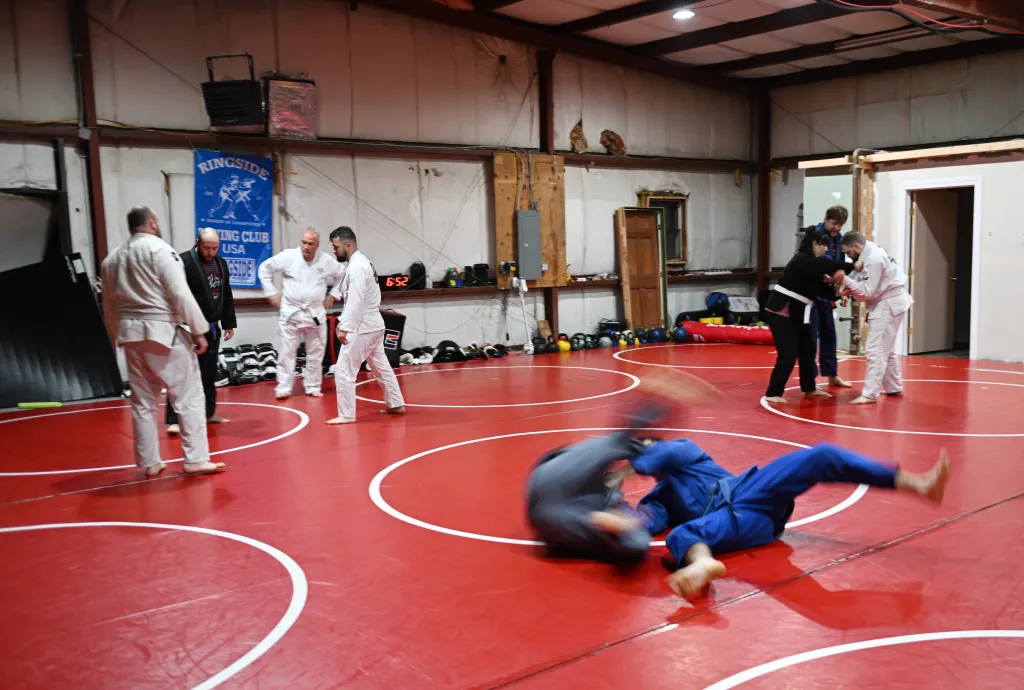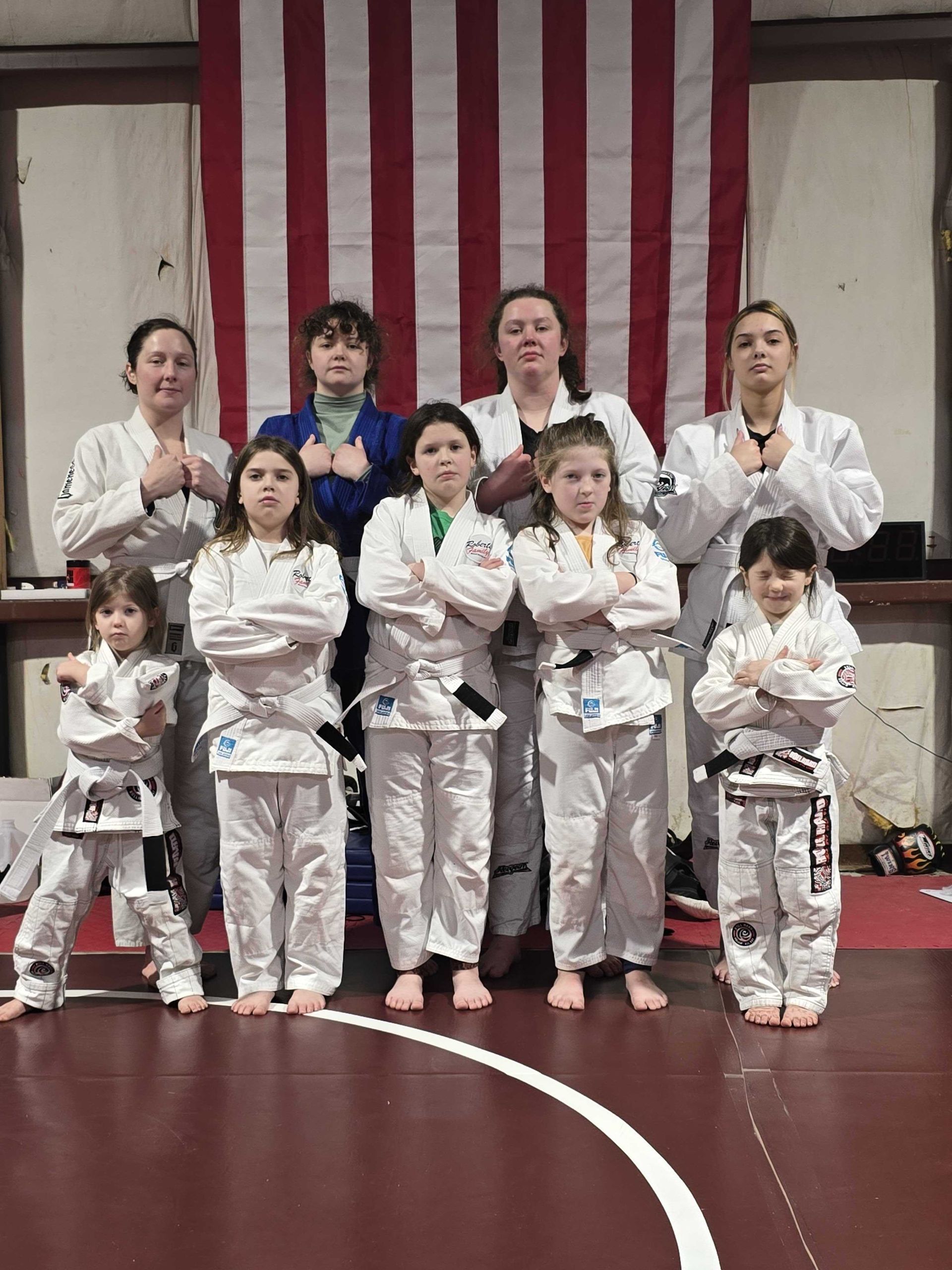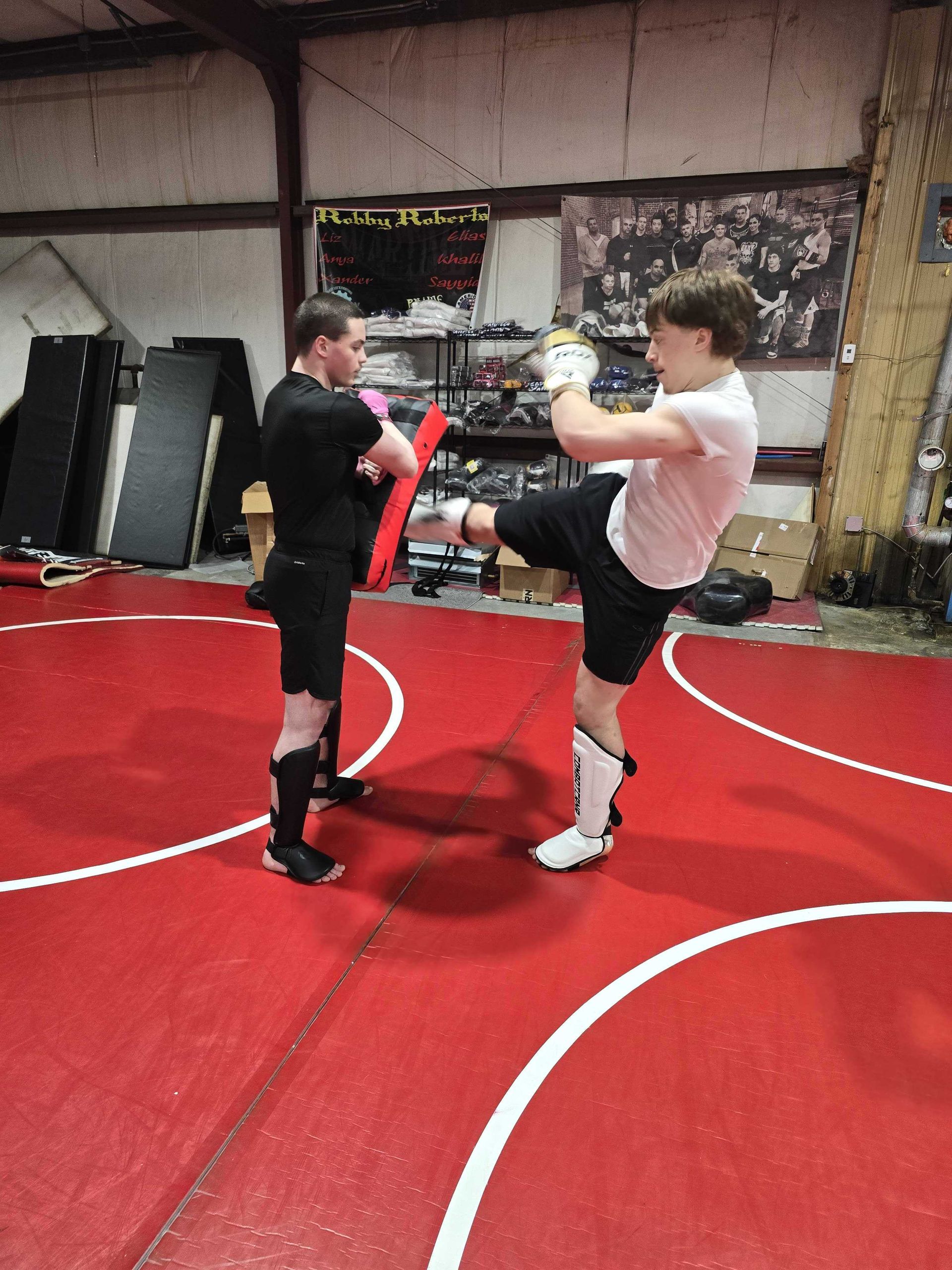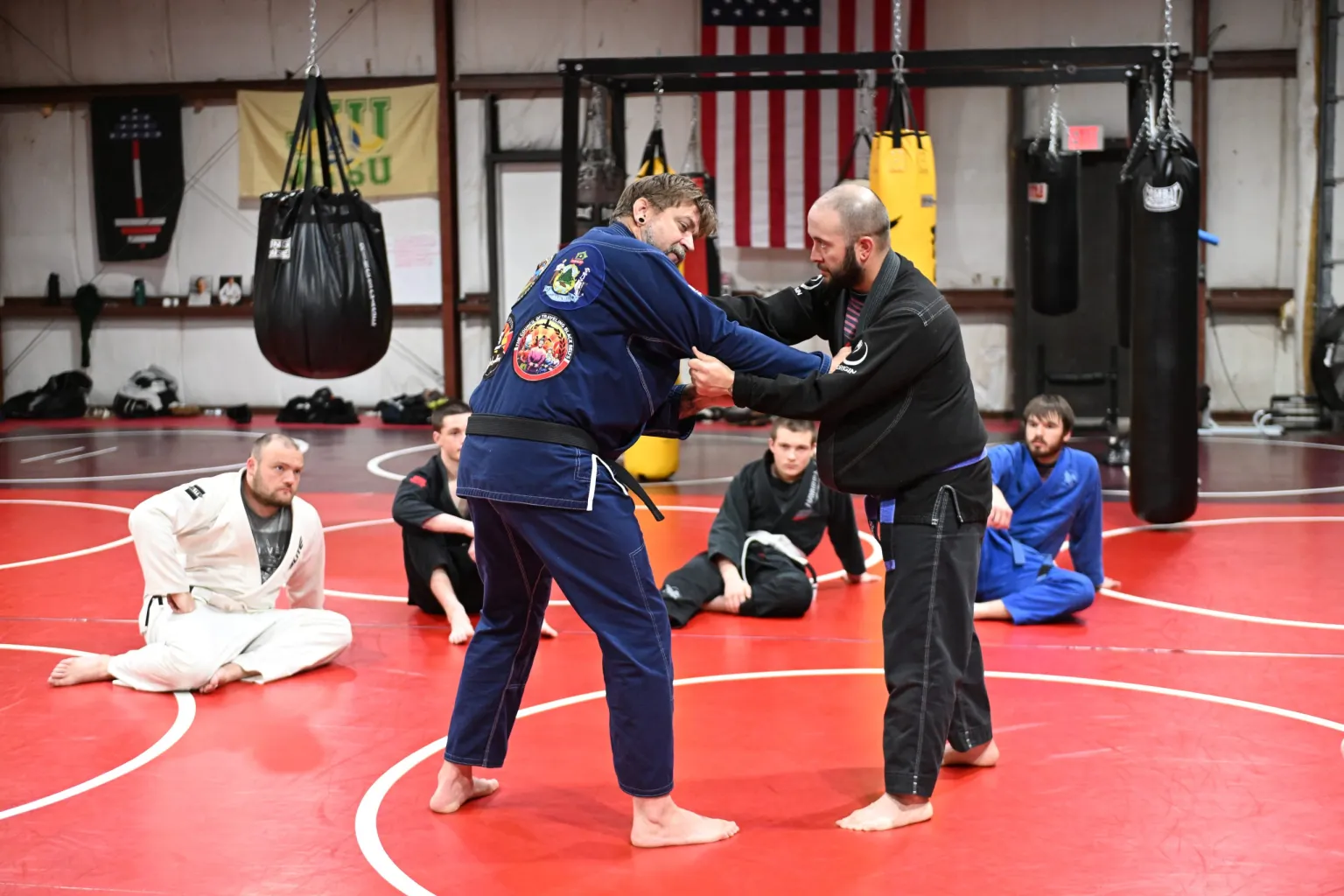Martial arts is more than just a physical activity—it's a comprehensive discipline that combines mental, emotional, and spiritual development.
One of the key elements of martial arts training is goal setting, which plays a crucial role in personal growth and success. Whether you're aiming for a new belt, mastering a specific technique, or improving your overall fitness, martial arts provides a structured approach to setting and achieving your goals. In this article, we will explore how martial arts can help individuals of all ages develop the skills needed to set and achieve goals, both on and off the mat.
The Philosophy of Martial Arts
At the heart of martial arts lies a philosophy that emphasizes self-improvement, respect, and perseverance. Martial arts teaches us to strive for excellence and to set high standards for ourselves. This philosophy aligns perfectly with the concept of goal setting, as it encourages individuals to define their objectives clearly and work diligently towards them. Whether it’s through the pursuit of a new belt rank or mastering a complex technique, martial arts instills the value of setting meaningful goals and taking systematic steps to achieve them.
Building Discipline and Focus
Discipline is a cornerstone of all martial arts practices. Regular training sessions, strict adherence to routines, and the pursuit of excellence require a high level of discipline. This discipline translates into better focus, which is essential for achieving any goal. In martial arts, students learn to concentrate on their movements, pay attention to their form, and stay committed to their training schedules. This focus helps them set clear goals and maintain the discipline needed to reach them, both within the dojo and in other aspects of their lives.
Setting SMART Goals
One of the most effective goal-setting frameworks used in martial arts is the SMART criteria—Specific, Measurable, Achievable, Relevant, and Time-bound. For instance, a martial arts student might set a goal to earn their next belt within six months by attending classes three times a week and practicing specific techniques daily. This goal is specific (earn the next belt), measurable (classes and practice sessions), achievable (within six months), relevant (aligned with their martial arts journey), and time-bound (six-month timeframe). By applying the SMART framework, martial artists can break down their aspirations into manageable and achievable steps.
Structured Learning Approach
Martial arts uses a structured approach to learning that is inherently goal-oriented. The belt system, which is common in many martial arts disciplines, serves as a clear representation of this structure. Each belt represents a milestone that students work towards, providing a tangible goal to aim for. This structured progression helps students stay motivated and gives them a clear path to follow. As they advance through the belts, they learn the importance of setting goals, working hard, and celebrating their achievements along the way.
Enhancing Perseverance and Resilience
Achieving goals in martial arts often involves overcoming obstacles and setbacks. Whether it's struggling with a difficult technique or facing a tough opponent, martial arts teaches perseverance and resilience. These qualities are crucial for goal achievement, as they help individuals push through challenges and continue working towards their objectives despite difficulties. By regularly facing and overcoming obstacles in martial arts, students learn to apply the same perseverance to their personal and professional goals.
Improving Self-Confidence
Success in martial arts builds self-confidence, which is a key ingredient for setting and achieving goals. As students progress through their training and accomplish their objectives, they develop a stronger sense of self-belief. This increased confidence encourages them to set more ambitious goals and take on new challenges, both in martial arts and in other areas of life. The sense of accomplishment that comes from earning a new belt or mastering a challenging technique reinforces the belief that they can achieve what they set their minds to.
Accountability and Self-Reflection
Martial arts emphasizes the importance of accountability and self-reflection in the pursuit of goals. Students are encouraged to take responsibility for their progress, hold themselves accountable for their training, and regularly reflect on their performance. This process of self-assessment helps students identify areas for improvement and adjust their goals accordingly. By fostering a habit of accountability and reflection, martial arts helps individuals develop a proactive approach to goal setting and achievement.
Time Management and Consistency
Achieving goals requires effective time management and consistency—two skills that are cultivated through martial arts training. Regular practice schedules, punctuality, and commitment to ongoing improvement are all part of the martial arts journey. Students learn to prioritize their time, make consistent efforts, and balance their training with other responsibilities. This disciplined approach to time management and consistency is crucial for achieving goals, as it ensures that individuals stay on track and make steady progress towards their objectives.
Developing a Growth Mindset
A growth mindset—the belief that abilities can be developed through dedication and hard work—is a fundamental aspect of martial arts. Martial arts encourages students to view challenges as opportunities for growth rather than obstacles. This mindset is essential for goal setting, as it motivates individuals to embrace challenges, learn from failures, and keep striving towards their goals. By fostering a growth mindset, martial arts helps individuals become more resilient, adaptable, and committed to their personal development.
Role of Mentors and Coaches
In martial arts, instructors and coaches play a vital role in guiding students towards their goals. They provide valuable feedback, set expectations, and offer support and encouragement throughout the training process. This mentorship is crucial for goal setting, as it helps students set realistic objectives, stay motivated, and overcome obstacles. Instructors not only teach martial arts techniques but also impart life skills that are essential for goal achievement, such as perseverance, focus, and self-discipline.
Visualization and Mental Rehearsal
Visualization and mental rehearsal are powerful tools used in martial arts to enhance goal achievement. By visualizing success, such as executing a perfect technique or winning a competition, students can improve their confidence and performance. Mental rehearsal helps them prepare for challenges, reduce anxiety, and stay focused on their goals. These mental techniques are not only effective in martial arts but can also be applied to any area of life where goal setting and achievement are important.
Celebrating Achievements
Celebrating achievements is an important part of the goal-setting process in martial arts. Recognizing progress, no matter how small, helps students stay motivated and committed to their journey. Whether it’s earning a new belt, mastering a new technique, or simply showing up consistently, celebrating these milestones reinforces the value of hard work and perseverance. This practice of acknowledging and celebrating achievements can be applied to any goal-setting process, making it a powerful tool for sustained motivation and success.
Application to Real-Life Scenarios
The goal-setting skills developed through martial arts extend far beyond the dojo. The discipline, focus, and perseverance that students learn can be applied to academic, professional, and personal pursuits. For example, a student who learns to set SMART goals in martial arts can use the same approach to achieve academic goals, such as improving grades or preparing for exams. The resilience and confidence gained through martial arts can help individuals tackle challenges in their careers, relationships, and other areas of life.
Community and Peer Support
One of the unique aspects of martial arts is the sense of community and peer support that it fosters. Training alongside others who share similar goals creates a supportive environment where students can encourage each other, share experiences, and celebrate successes together. This community aspect provides additional motivation and accountability, making it easier for individuals to stay committed to their goals. The bonds formed in martial arts classes often extend beyond the dojo, creating a network of support that can help individuals achieve their personal and professional aspirations.
Long-Term Benefits of Goal Setting in Martial Arts
The goal-setting skills learned in martial arts have long-term benefits that can positively impact various aspects of life. By developing habits of discipline, focus, and perseverance, individuals are better equipped to set and achieve goals throughout their lives. The structured approach to goal setting in martial arts fosters a lifelong habit of personal development and continuous improvement. Whether it’s pursuing a career goal, maintaining a healthy lifestyle, or working towards personal growth, the skills and mindset developed through martial arts provide a solid foundation for success.
Final Thoughts
Martial arts is a powerful tool for personal development that goes beyond physical fitness. Through the structured goal-setting approach inherent in martial arts training, individuals can learn valuable skills that help them set and achieve goals in all areas of life. From building discipline and resilience to developing a growth mindset and leveraging community support, martial arts provides a comprehensive framework for success. Whether you're a beginner or an experienced martial artist, the lessons learned on the mat can help you achieve your personal and professional aspirations.
FAQs
How can martial arts help with personal goals?
Martial arts teaches discipline, focus, and perseverance, which are essential skills for setting and achieving personal goals. The structured approach and continuous feedback help individuals stay on track and motivated.
What is the role of martial arts instructors in setting goals?
Instructors play a crucial role by guiding students in setting realistic goals, providing feedback, and offering support throughout their journey. They help students identify their strengths and areas for improvement, which is key to effective goal setting.
How does martial arts improve self-discipline?
Martial arts requires regular practice, adherence to routines, and a commitment to improvement, all of which build self-discipline. This discipline helps students stick to their goals and consistently work towards achieving them.
Can martial arts help children with goal setting?
Yes, martial arts is excellent for children as it teaches them how to set and achieve goals through structured progression, such as earning belts. It also builds confidence, focus, and the ability to overcome challenges.
What age is best to start martial arts for goal setting?
Martial arts can be beneficial at any age, but starting young can help children develop goal-setting skills early. However, adults can also gain significantly from martial arts training by learning to set and achieve personal and professional goals.
How do martial arts schools measure progress?
Progress in martial arts is typically measured through belt rankings, performance evaluations, and mastery of specific techniques. Regular assessments and feedback from instructors help students understand their progress and set new goals.
ACCESS OUR SCHEDULE
& EXCLUSIVE WEB SPECIAL
Secure your spot and get started today with our EXCLUSIVE offer!








